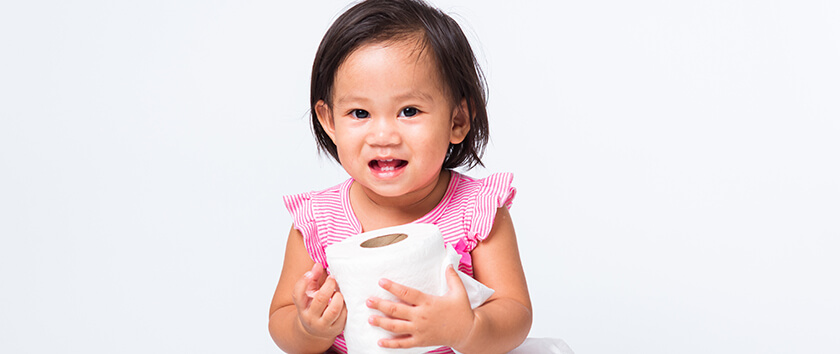
Pine Cone Health
Potty Training – How to Tell if Your Child is Ready
Knowing when your child is ready for potty training can be challenging. The full daytime and nighttime
bowel and bladder control is typically achieved by the age of 5, with bowel control occurring first.
There are multiple factors that determine whether a child will gain this control by 5.
Some of those include the behavioural maturity of the child, cognitive development, awareness of the
body and how it works, the gaining of motor control with activities, the transition for it being involuntarily to
controlled to voluntary and a balanced relationship between the child and their environment. Even after the
age of 5 though, 15-20% of kids still experience accidents (Barone et al., 2009).
When is the Best Time to Start Toilet Training?
The ideal time to start potty training is between 27 and 32 months (Barone et al., 2009). For the
bladder it is around this time that kids start to understand the feeling of being wet as well as how
to actively stop, hold or start toileting. It is not until a child is 3-4 years old that they begin to feel
and know sensation of urge and are able to be control being dry both during the day and at night.
This is around the same age as when kids start to have bowel movements less frequently as the
size of their stool gets bigger and they gain more control. This process of understanding and
feeling what is going on and controlling it should be started with the help of parents with the use
of potty training, then slowly kids will achieve control on their own.
The process is not just about kids stopping having accidents but it is an important part of their
development and learning, to be aware of the need to go to the bathroom and decide whether
they are going to stop that urge or go (Brown et al., 2018). In these years they will also learn how
to go even if there is only a little bit of urine there. It is important as parents to recognize that this
is an active learning process and will take time.
Helpful tips to prevent problems with bowel and bladder function is to not start potty training too
early before the child’s bowel and bladder have developed enough to have the control, try not to
teach or let the child strain or push with bowel and bladder, help the child avoid constipation and
be a role model for your children with healthy living habits including exercise, good fibre and
fluid intake, and a positive attitude towards the bathroom (Brown et al., 2018).
Did you know that physiotherapy can help with potty training? Our team of physiotherapy experts can
assist you and your child with an effective treatment plan.
Call us today for an appointment to learn if pediatric physiotherapy is right for you!
References:
Barone, J. G., Jasutkar, N., & Schneider, D. (2009). Later toilet training is associated with urge incontinence in children. Journal of Pediatric Urology, 5(6), 458-461.
Brown, C., Lord, M.J., & Valancogne, G. (2018). Pelvic Floor Physiotherapy in Paediatrics [PDF Document].
